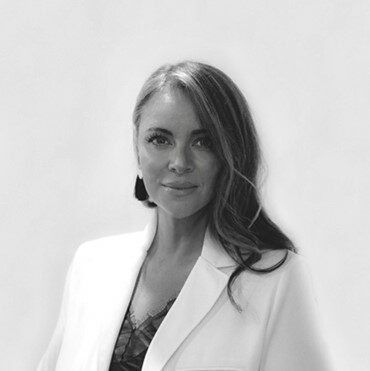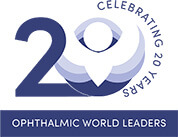Grit: A Passion and Perseverance for Patient Care

A Conversation with Eris Jordan, OD, Vice President of Clinical and Medical Affairs at Aurion Biotech and OWL Champion Member
Grit: noun
1. sand, gravel
a. a hard sharp granule (as of sand) also: material (as many abrasives) composed of such granules
b. any of several sandstones
2. the structure of a stone that adapts it to grinding
3. the size of abrasive particles usually expressed as their mesh
firmness of mind or spirit: unyielding courage in the face of hardship or danger
Merriam Webster
To those of us in ophthalmology, Merriam Webster’s definition 1a rings true, since a sensation of grit in the eye can be synonymous with ocular surface disease. Definition 4 however, is having a renaissance moment: we read about grit as a character trait to be encouraged in K-12 education, we applaud the grit of first responders in an emergency, and Gritty is even the name of the Philadelphia Flyers NHL team mascot!
University of Pennsylvania professor and researcher Angela Duckworth has a slightly different definition that’s a close cousin to Merriam’s #4: passion and perseverance. Duckworth has published extensively on grit and has developed a 12-question grit survey[2]. Out of a possible score of 5.0 (fully ‘gritty’), Eris Jordan, OD scored a 4.75.
We sat down with Dr. Jordan to learn more about the role of grit in her life. What follows is a condensed transcript of our conversation:
Congrats on your grit score. If this were the Olympics, you’d qualify for a medal! Where does your grit come from?
Thank you. I’m not sure it’s a good thing, since many people see it as stubbornness! I believe my grit to be both familial and acquired, thus embedded (for better or worse). My parents have loads of grit: theirs is the classic immigration story. We moved to the US from Albania when I was 13. My parents left behind great careers (my mother was chief of medicine and my father was a physicist in our home city of Korça), in search of a better life for me and my sister. When we arrived in Philadelphia, no one spoke sufficient English. We each had to start over.
When I entered high school, I was relegated to ESL classes (English as a Second Language). I was bullied for my heavy accent and general lack of knowledge of US teen popular culture. I felt immense isolation.
Although assimilation into American culture was challenging for all of us, we never complained; we had no choice except to persevere. My mother found work in medical research; my father obtained a master’s degree in mathematics and taught in the Philadelphia schools, and my sister pursued a doctorate in Pharmacy. I finished my freshman year of high school, determined to become an American girl. That summer, I spent hours improving my English, watching TV shows and going to the mall to observe American kids. I threw myself into absorbing and learning whatever I could. When I returned to school that fall, the metamorphosis was complete: I was an American girl, with barely a trace of an accent. Three years later, I was invited to speak at my high school graduation. The topic? How to persevere, against daunting odds.
That’s an incredible story. How did you decide to choose your career?
In many ways, the career chose me. I think my parents were the unconscious example. They were both STEM educated: my father a professor, my mother a physician. As a child in Albania, I observed my mother while she treated sick, underserved children. Ever since, I’ve felt a calling to serve others: it has permeated all aspects of my personal and professional life. After volunteering one summer at an ophthalmology practice, I saw first-hand the impact of restoring vision to patients and my interest was piqued. I studied biosciences in Temple University’s Honors Program. After three years, I was accepted into the Pennsylvania College of Optometry’s accelerated program. In my first year there, I relied on focus and grit to secure a rotation at the prestigious Bascom Palmer Eye Institute. After graduating with highest clinical honors, I immersed myself in patient care.
Patient care is a privilege. It keeps me humble. I am a champion of innovation, so my work in the ophthalmology industry means that I can channel that information directly to my patients.
What does “grit” mean, in the world of a biotech start-up?
Grit is boundless determination. It is also one of our three core values at Aurion Biotech (the others are stewardship and transformation). Start-ups are inherently challenging: every day presents a new set of obstacles. Everyone must wear many ‘hats’ and pitch in to ensure the work gets done. There is always too much to do, and it’s easy to get distracted.
That’s where grit comes in: we must continually stay focused on the long-term goal of bringing this revolutionary cell therapy technology to patients with corneal endothelial disease. It’s exciting, but also exhausting.
What grit advice do you have, for professionals who are earlier in their ophthalmology careers?
- Grit can be learned. The right circumstances can be transformative, so look for situations that require perseverance but also where you can apply your passion. Say ‘yes’ to professional opportunities that may feel uncomfortable.
- Seek out tough problems. Challenges have the potential for the most impactful learnings. You will learn and grow the most from facing obstacles that demand grit. For example, we faced a Category 4 hurricane on the eve of our IOTA trial last year! But commitment from our surgeons, and all hands pitching in for trial logistics, enabled us to proceed on time. The key learning: when there’s a will, there’s always a way.
- Pain can be useful. I’m not advocating for people to be miserable! However, understanding the source of your discomfort unlocks the key to surmounting the problem, and that’s when you achieve greater self-awareness.
- We are each the sum of our own experiences. Every project, every job or role has something to teach you–especially the biggest problems! You may not understand the value in that moment, but a “grit” mentality enables you to integrate your experiences on the path to continuous professional and personal advancement.
Eris Jordan, OD, is a practicing optometrist at Siepser Eye Care in Wayne, PA, and the VP of Clinical & Medical Affairs at Aurion Biotech. She Is a proud Champion Member of OWL.
[1] https://www.merriam-webster.com/dictionary/grit
[2] https://angeladuckworth.com/qa/
